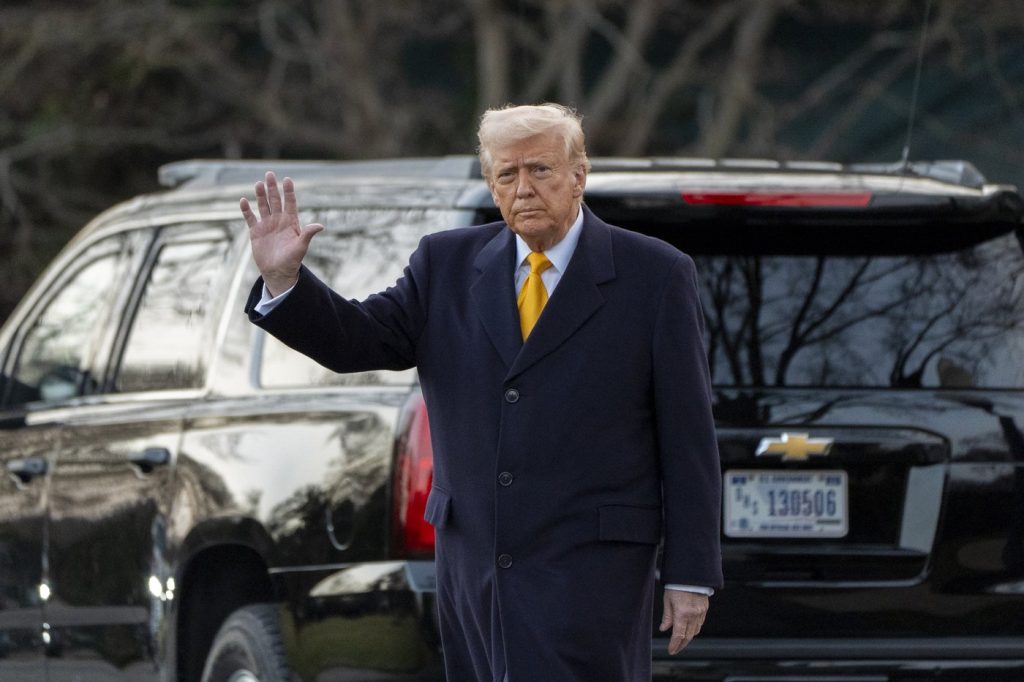In West Palm Beach, Florida, President Donald Trump is downplaying the concerns expressed by businesses over the uncertainty created by his impending tariffs on a variety of American trading partners. Despite acknowledging the potential for a recession this year, Trump insists the long-term effects of his tariff policies will be beneficial for the United States economy.
After implementing and then pausing a 25% tariff on imports from Mexico and Canada, which had caused market volatility due to fears of a trade war, Trump announced that his plans for reciprocal tariffs would take effect on April 2. He stated, "April 2nd, it becomes all reciprocal. What they charge us, we charge them," emphasizing a commitment to leveling the playing field for American businesses.
When asked about the Atlanta Federal Reserve's indication of possible economic contraction in the first quarter, Trump appeared to acknowledge his tariff plans might impact U.S. economic growth. However, he remained optimistic, suggesting that the transition period would ultimately produce favorable outcomes, claiming, "It’s great for us..." He added, "It takes a little time," indicating a belief in the long-term benefits of his strategy to bring wealth back to America.
The stock market has seen a turbulent week, largely driven by investor concerns regarding Trump's tariffs and their implications for the economy. Wild fluctuations reflect uncertainty surrounding economic stability, yet Trump dismissed the worries of businesses seeking predictability as they navigate their investment decisions. Articulating his stance, he criticized "big globalists" for supposedly exploiting the United States and expressed his intention to rectify that imbalance through increased tariffs.
Trump revealed last week that he lifted tariffs on American car manufacturers regarding Mexico and Canada but maintained them on Chinese goods. Furthermore, more tariffs are anticipated in the coming week, with Commerce Secretary Howard Lutnick announcing that 25% tariffs on steel and aluminum imports will take effect on Wednesday. Additionally, Lutnick mentioned that Trump's proposed tariffs on Canadian dairy and lumber would not be implemented until April.
In defense of the economic changes, Lutnick acknowledged the likelihood of price distortions in the market. He stated, “Foreign goods may get a little more expensive. But American goods are going to get cheaper, and you’re going to be helping Americans by buying American.” This reflects the administration's overarching goal to stimulate domestic production and strengthen the U.S. economy through protective measures against foreign competition.
As Trump continues to champion his tariff policies, he has indicated that they could potentially increase further over time. His administration’s focus remains on ensuring that American industries are treated fairly while attempting to recapture economic stability and growth amidst rising global trade tensions.











